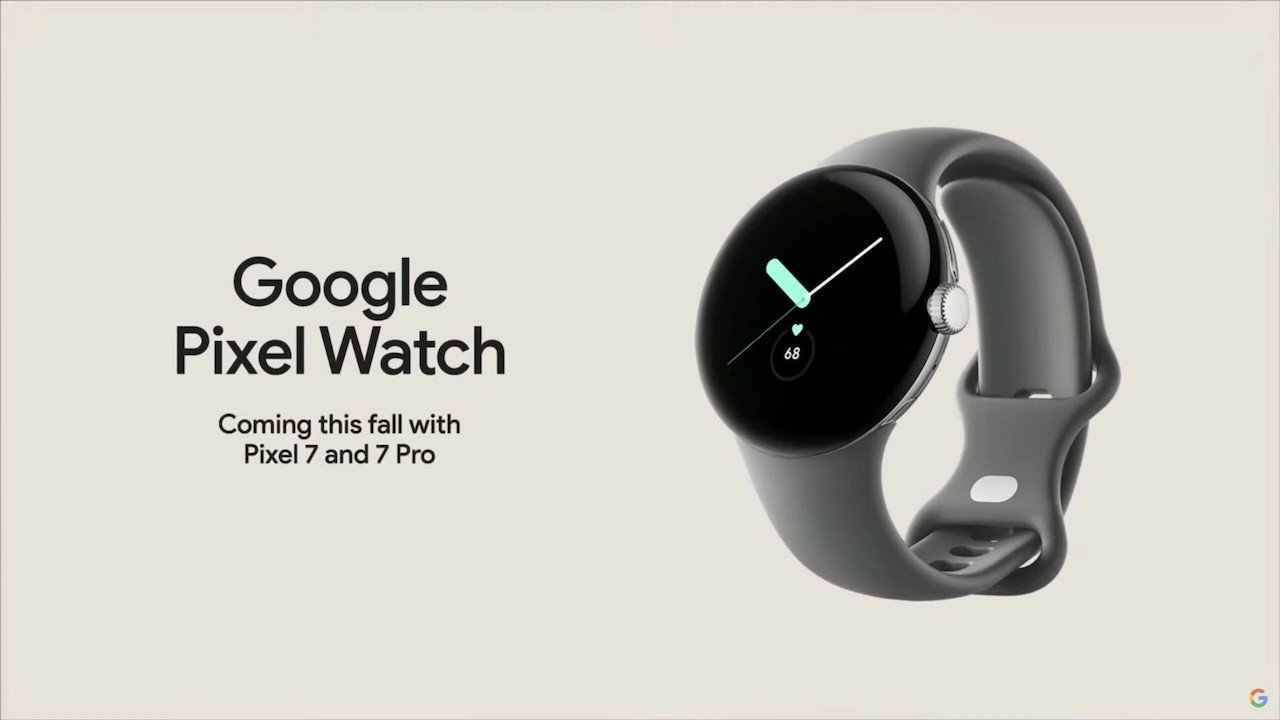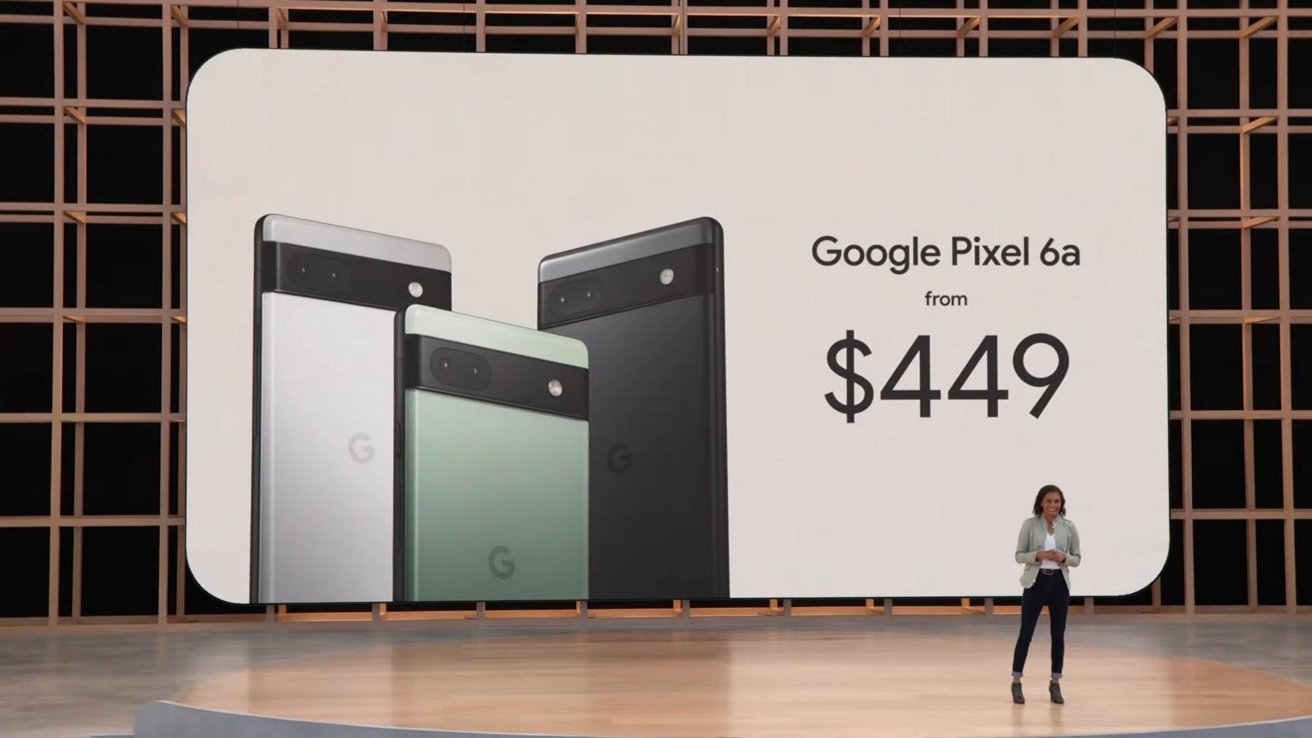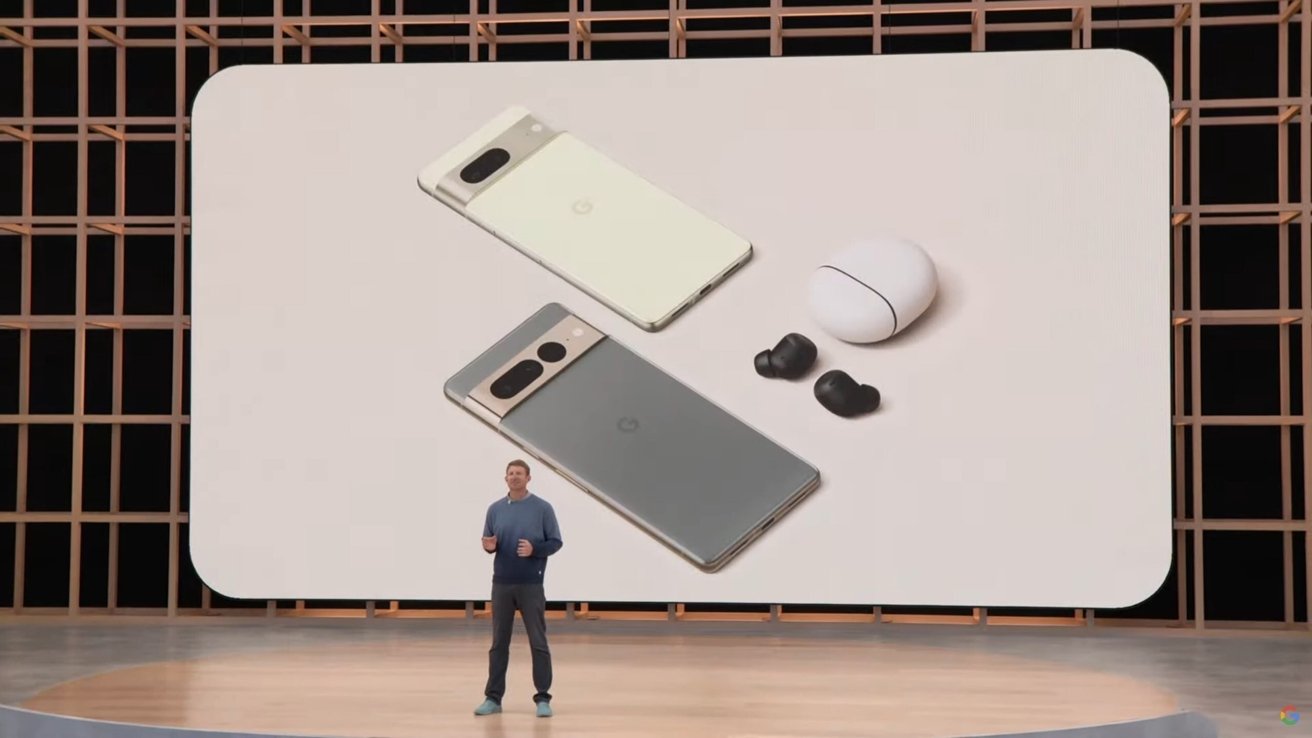Google I/O sees debut of Pixel 6a, Pixel Watch, Pixel Buds Pro
Google has announced a number of new products and software at its annual I/O conference, including the long-rumored Pixel 6a, the Pixel Watch, a pair of Pixel Buds Pro with Active Noise Cancellation, and new versions of Android and Wear OS.

Google Pixel Watch
After months of rumors about a first-party Google smartwatch, the company has officially released the Pixel Watch. The device is essentially the Android version of the Apple Watch, with swappable bands, heart rate monitoring, and a sleek rounded case with a rotating crown. Unlike Apple's wearable, it sports a circular design.
The device largely serves as a showcase for Google's new Wear OS 3 operating system. The new update brings more Fitbit activity tracking integration, as well as improved navigation and performance, support for third-party app widgets, and broader customization for smartwatch manufacturers.
The Google Pixel Watch will come in Black, Gray, and Gold color ways. It will debut in the fall.
Pixel 6a
Alongside the Pixel Watch, Google has also unveiled its latest midrange smartphone, the Pixel 6a. The 6.2-inch device uses the same Tensor chip and general aesthetic as the flagship Pixel 6, but retains a 12-megapixel camera instead of the Pixel 6's high-end 50-megapixel setup.
Along with its new design and improved processor, the device also sports an under-display fingerprint sensor, faster mmWave 5G support, and no headphone jack.
The Pixel 6a will ship running Android 13, the latest iteration of Google's smartphone operating system. Android 13 brings incremental changes to the platform, including an expansion of Google's Material Design philosophy and improved media playback controls.
Additionally, Android 13 also introduces support for Google's answer to spatial audio, additional privacy features to lock down user data, and quicker Bluetooth pairing for connected headphones.
The Pixel 6a will be available to preorder on July 21. It will retail for $449.
Pixel Buds Pro
Google also unveiled new Pixel Buds Pro earbuds that bring active noise cancellation to the company's lineup of headphones. Like Apple's AirPods Pro, the device also sports a transparency mode that allows users to hear what's going on around them.
The company says the Pixel Buds Pro will last 11 hours on a charge, or seven hours with ANC enabled. They'll also support connectivity and automatic audio switching with a range of Android products.
They will retail for $199 and become available for preorder on July 21.
Additionally, Google also gave a sneak peek at a new Pixel tablet coming in 2023 and a pair of AR glasses -- though it offered very few details about the latter device.
Read on AppleInsider
Google Pixel Watch
After months of rumors about a first-party Google smartwatch, the company has officially released the Pixel Watch. The device is essentially the Android version of the Apple Watch, with swappable bands, heart rate monitoring, and a sleek rounded case with a rotating crown. Unlike Apple's wearable, it sports a circular design.
The device largely serves as a showcase for Google's new Wear OS 3 operating system. The new update brings more Fitbit activity tracking integration, as well as improved navigation and performance, support for third-party app widgets, and broader customization for smartwatch manufacturers.
The Google Pixel Watch will come in Black, Gray, and Gold color ways. It will debut in the fall.
Pixel 6a
Pixel 6a
Alongside the Pixel Watch, Google has also unveiled its latest midrange smartphone, the Pixel 6a. The 6.2-inch device uses the same Tensor chip and general aesthetic as the flagship Pixel 6, but retains a 12-megapixel camera instead of the Pixel 6's high-end 50-megapixel setup.
Along with its new design and improved processor, the device also sports an under-display fingerprint sensor, faster mmWave 5G support, and no headphone jack.
The Pixel 6a will ship running Android 13, the latest iteration of Google's smartphone operating system. Android 13 brings incremental changes to the platform, including an expansion of Google's Material Design philosophy and improved media playback controls.
Additionally, Android 13 also introduces support for Google's answer to spatial audio, additional privacy features to lock down user data, and quicker Bluetooth pairing for connected headphones.
The Pixel 6a will be available to preorder on July 21. It will retail for $449.
Pixel Buds Pro & More
Pixel Buds Pro
Google also unveiled new Pixel Buds Pro earbuds that bring active noise cancellation to the company's lineup of headphones. Like Apple's AirPods Pro, the device also sports a transparency mode that allows users to hear what's going on around them.
The company says the Pixel Buds Pro will last 11 hours on a charge, or seven hours with ANC enabled. They'll also support connectivity and automatic audio switching with a range of Android products.
They will retail for $199 and become available for preorder on July 21.
Additionally, Google also gave a sneak peek at a new Pixel tablet coming in 2023 and a pair of AR glasses -- though it offered very few details about the latter device.
Read on AppleInsider

Comments
At least their watch isn’t a knockoff as far as design goes.
Beyond Apple and Google design which you referenced, some features are exclusive to Google products, just as some features are exclusive to Apple products. Neither company can currently match the other feature for feature.
Not as industry leading as they wanted it to be.
Despite the fact that they added an extra hole, if you look at the details like the indented curvature and the way it follows the outline of watch face, it's a very similar design. I'd be willing to bet that the material is also the same. There are a lot of ways to design a watch band.
Round watch? Enough said. The epitome of form over function. Make a watch that looks like traditional watches while sacrificing screen real estate and usability.
Ecosystem? Google is missing one huge piece. They don’t have a desktop OS (Windows or macOS). They have a mobile OS (Android), an even less useful wannabe OS (Chrome) and yet another mobile/embedded OS (Fuchsia). And they think by adding some interoperability (like Android Apps on Chromebooks) somehow makes for a viable desktop platform. They’re stuck making their products work with Windows or macOS but can never have the deep integration possible when you control the entire “ecosystem”.
The fact of the matter is that they could have gone in dozens of different directions with the band design (whether it was Fitbit or Google is irrelevant since the latest incarnation is Google's product). However, that would have cost more to design because they would have had to iterate on the different designs, field test them, hire people with previous watch design experience, materials experts, etc. Copying Apple's fundamental design and changing a couple small details to avoid any lawsuits is much cheaper.